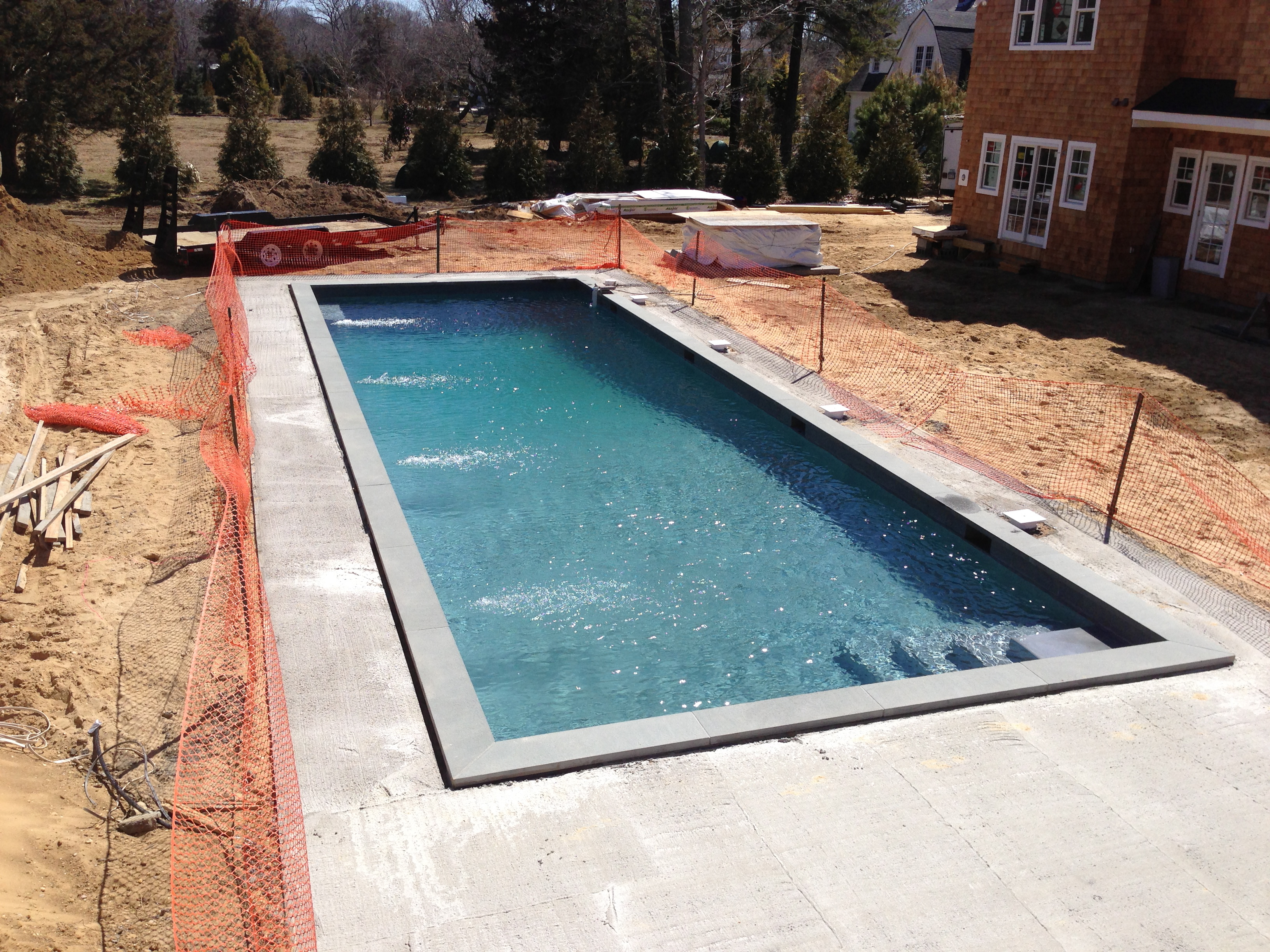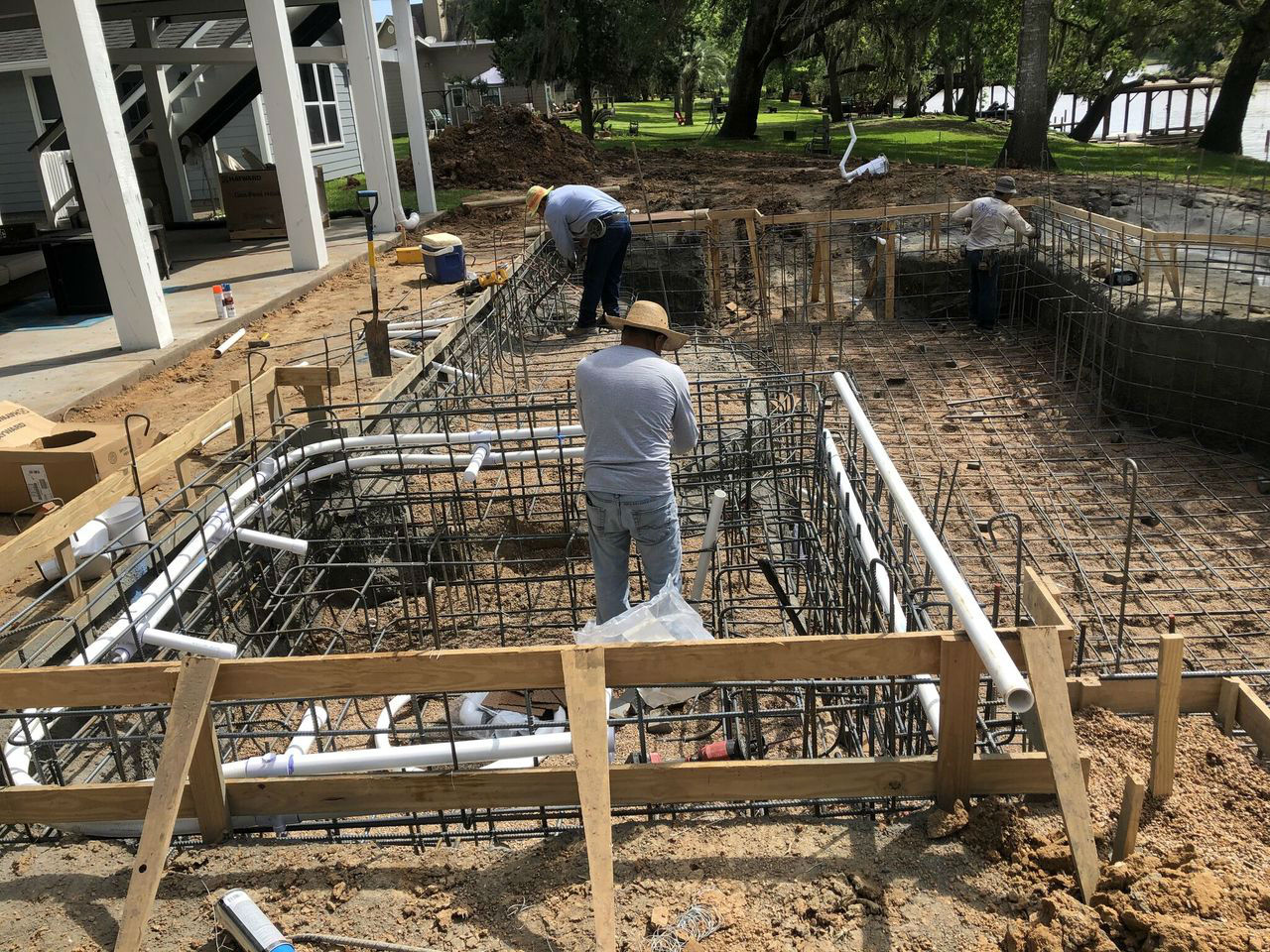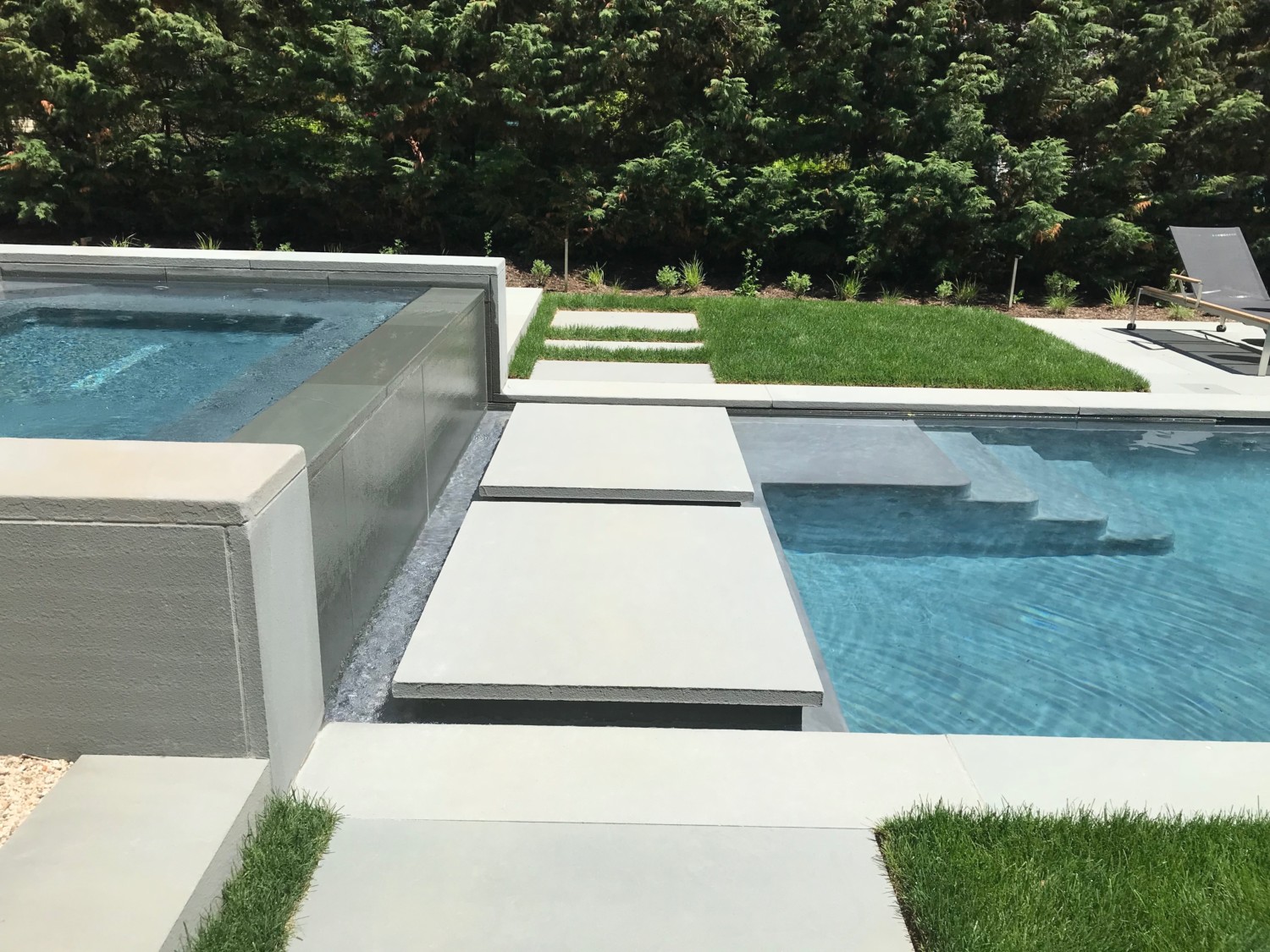
Tips for Repairing a Gunite Swimming Pool
- Clean. Make sure the pool is completely dry and, using the broom, sweep any loose dirt away from the area of the crack.
- Use a Grinder. Use the grinder with the diamond blade to widen and deepen the crack. ...
- Mix Cement. In the bucket, mix three parts cement and two parts white sand. ...
- Caulk. ...
- Plaster. ...
Full Answer
What are the steps to replaster a gunite pool?
#
- You have to prepare the pool for replastering #. Before you start replastering the pool, make sure that you switch off all the pumping and filtration systems.
- Preplastering #. Spritz acid onto the old plaster using an appropriate brush. ...
- Start applying the plaster #. ...
- Painting the pool #. ...
How often do you need to resurface a gunite pool?
When gunite swimming pools are in question, they should be replastered every 7-10 years, depending on the condition. When it comes to choosing the resurface material, you can either stick to the one your swimming pool is already coated with or choose another one that you recon will provide more comfort and durability.
How to tell if you need gunite pool resurfacing?
- Plaster Flaking or Peeling Maybe you’ve noticed the plaster is peeling along the steps or floor of your pool or spa. ...
- Surface Stains Copper, calcium, and salt are the main culprits for surface stains. ...
- Roughness At one time you had a fresh smooth pool plaster surface. ...
Does your gunite pool needs resurfacing?
Nonetheless, maintaining a gunite pool is not a walk in the park. These pools have rough surfaces and need frequent resurfacing procedures. In fact, several gunite pool owners resurface their pool after four years of use. But, on average, your gunite pool needs resurfacing every seven to ten years.

How to get gunite dust out of crack?
Use the grinder with the diamond blade to widen and deepen the crack. Use a low setting on the grinder and place it in the crack to accomplish this. Move the grinder around carefully until the crack is made a few inches deep and wide. Use the rag to wipe the gunite dust. Wet the area with the hose.
How to make a pool with cement and sand?
In the bucket, mix three parts cement and two parts white sand. You can also add an acrylic cement bonding agent if you desire. This can be purchased at any home improvement or pool supply store. Slowly add in one part water until the mixture is pasty but not dripping, like peanut butter.
Why does my pool have cracks?
Over time, however, cracks can form because of weather or other damage. Besides cracks, “pop-ups” can also appear. These are hollow spots in the pool's surfac e. Pool surfaces sometimes chip as well. It is possible to repair this damage yourself. Gunite is porous and is sealed from the water by a plaster coating.
What is the best material for a pool?
Portland cement. Putty knife. Rag. Trowel. White sand. Gunite is a concrete material used in the construction of swimming pool structures. The benefit to a gunite swimming pool is its resilience and flexibility, allowing for pools of almost any shape. It is also extremely strong and durable.
Testing for a Leak
First, it’s important to be aware that hairline cracks in your pool’s shell do not always constitute a leak. All pools will crack eventually, but these cracks are usually just on the surface of the gunite, only going through the paint or pool’s finish. To determine if any of these cracks are causing a leak, follow these steps:
Finding the Source
So, if most cracks in your pool are just surface cracking, how do you know which one is causing the leak? A few drops of food coloring can help you figure it out. Get in the water and release a couple of drops directly in front of each crack you can see in your pool.
Fixing the Leak
Once you’ve pinpointed the leak, how do you fix it? Again, you will probably want to have a professional handle this to ensure it’s done properly, but in most cases, the repair process is relatively simple. First, the crack is widened using a grinder or drill, and any debris inside of the crack is cleaned out.
Why do you put gunite on top of pool?
Since gunite is porous, a layer of pool plaster or other finish then has to be applied on top to act as a water barrier. If pool plaster isn’t applied properly water can seep through even microscopic capillaries, causing damage.
Why do gunite pools crack?
Gunite pools can also develop major structural cracks, usually due to shifting ground or the freezing and thawing of water that has managed to permeate the capillaries in gunite.
How much to fix a gunite pool?
These cracks could be structural or surface cracks. On average, pool contractors charge approximately $75 per linear foot when it comes to minor cracks. On the flip side, pool builders charge up to $1,000 to fix a structural pool crack for a 150 square foot pool. Instead of waiting for your pool to develop cracks, you can implement preventative measures. There are many ways you can incorporate to prevent pool cracks.
How much does it cost to resurface a gunite pool?
Usually, resurfacing a gunite pool will cost you thousands of dollars. Averagely, you need about $6,000 to resurface a gunite pool. Note that the price fluctuates depending on your pool contractor.
How much does it cost to repair an inground pool?
First, let’s look at the average cost incurred for inground pool repairs. Pool owners can end up spending up to $4,000 on an inground pool repair. It all depends on the type of pool and contractor. Minor pool repairs can cost as little as $200. So, it is essential to know your pool repair needs.
What is the most expensive pool?
Today, gunite pools are the most expensive pools. They incorporate not only massive initial costs but also high maintenance costs. Even so, they offer a wide range of benefits that explain their rising popularity. With gunite pools , you can transform your backyard into everything you ever imagined.
How much does it cost to replace a pool light?
For instance, LED pool lights offer the highest longevity and can last for a decade. On average, you’ll spend about $60 , replacing one piece of pool light.
How much does it cost to fix a crack in a pool?
On the flip side, pool builders charge up to $1,000 to fix a structural pool crack for a 150 square foot pool. Instead of waiting for your pool to develop cracks, you can implement preventative measures. There are many ways you can incorporate to prevent pool cracks.
Do gunite pools need repairs?
These pools provide great flexibility and longevity. But, over time, gunite pools tend to wear out and need various pool repairs. Of course, this depends on your pool maintenance routine. If you take good care of a gunite pool, you will rarely experience these problems.
